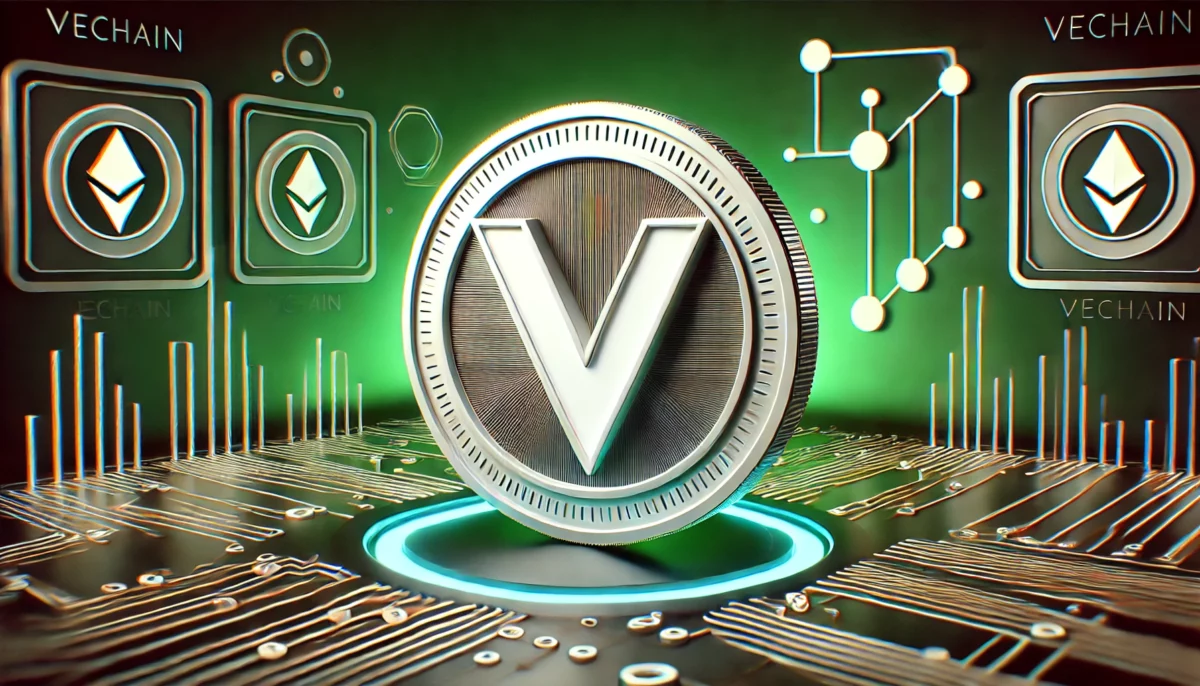ARTICLE AD BOX

- In August, the Hayabusa upgrade received approval from all stakeholders, and the network has now officially launched its Testnet.
- Hayabusa brings a transition from PoA to Delegated Proof of Stake to promote decentralization and community participation.
VeChain (VET) was co-founded in 2015 by Sunny Lu and backed by BitSE, and is officially transitioning from its long-standing Proof-of-Authority (PoA) system toward a more decentralized Delegated Proof-of-Stake (DPoS) model as a part of the “VeChain Renaissance” roadmap.
Since its mainnet launch, the VeChainThor blockchain has operated under a Proof-of-Authority consensus system. This model gave VeChain the speed and reliability needed for enterprise-level blockchain applications in supply chain management, carbon tracking, and logistics.
However, it also limited participation to a small approved group. The VeChain team announced on X that the Hayabusa Testnet has officially gone live, initiating a seven-day transition period.
“With Hayabusa now activated on Testnet, a 7-day transition period has begun. The testnet continues to process transactions and finalize; automatic VTHO generation has now stopped, and Validators can join the validator queue, signaling their intent to switch to DPoS at the end of the transition period, ”they explained.
According to the timeline, the Hayabusa transition period will conclude on November 11th at 11:39:30 UTC. The mainnet Hayabusa network upgrade is scheduled to follow on December 2, and Phase 3, Interstellar, is already in development and will introduce JSON-RPC compatibility along with an Ethereum Virtual Machine (EVM) upgrade in 2026.
What Changes with Hayabusa
As CNF reported, voting for Hayabusa began on August 18 and concluded with 98.39% approval, with 0.23% disapproval and 1.39% abstentions. The Delegated Proof-of-Stake (DPoS) system features a set of 101 validators responsible for block production and network security.
Any VeChain user can now participate indirectly by staking VET through StarGate and delegating to one of these validators. Reward distribution follows a tiered multiplier system. Validators earn 2x rewards, X-Node Delegators receive 1.5x, and Economic Node Delegators earn at the standard 1x rate.
Also, any holder with 25 million VET can enter the validator queue via a first-in, first-out system, ensuring transparent access to validator positions and opening VeChain’s governance to a range of participants.
Under PoA, VeThor Token (VTHO) was generated passively by holding VET. With Hayabusa, VTHO generation stops automatically unless VET is staked or delegated, ensuring rewards go to active participants. Block rewards have been restructured, with 30% allocated to Validators and 70% to Delegators.
As more VET becomes locked through staking, the amount of circulating VET capable of earning rewards decreases, resulting in a smaller overall supply of newly minted VTHO and promoting a more sustainable token economy.
Sunny Lu, VeChain’s co-founder and CEO, shared that the Hayabusa upgrade is already attracting new validators to the network. He highlighted that Redeno, a liquid staking platform and simulation tool within VeChain, has confirmed 19 active validator nodes, collectively locking 475 million VET, with more validators currently in the onboarding process.
As mentioned in our previous news brief, VeChain has partnered with Keyrock, a crypto liquidity and trading firm, to support derivatives, trading, and liquidity infrastructure for assets being tokenised on VeChain. VeChain has also partnered with Franklin Templeton to integrate the latter’s tokenisation platform, BENJI, into VeChain’s infrastructure.
As discussed earlier, these upgrades are expected to serve as a catalyst for VET’s price, with a potential rally toward $0.095, up from its current $0.01413. That represents a nearly 570% upside from current levels, despite VET’s recent 15% decline over the past week. As of now, VeChain holds a market capitalization of approximately $1.12 billion.
.png)
 2 hours ago
2
2 hours ago
2








 English (US)
English (US)